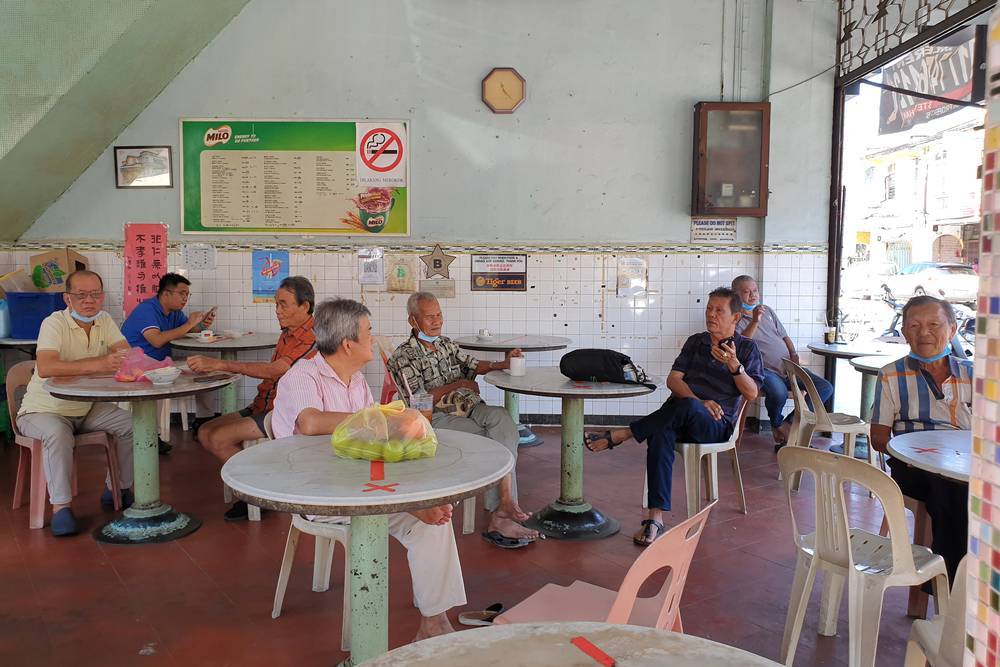Malaysia’s ageing population requires a paradigm shift to ensure a healthy, sustainable and productive nation for the future.
Malaysia has to consider vital socioeconomic aspects such as employment, public retirement plans and healthcare systems as we continue the ageing population. Early planning and preparation by the government can help the nation ease into the situation rather than a rushed and chaotic revamp.
Malaysia’s Ageing Population
An ageing population refers to a population where older individuals make up a larger portion of the population. According to the United Nations (UN), an older person refers to an individual who is 60 years or older. Malaysia, however, defines the elderly as individuals aged 65 and above.
The Economic Outlook 2023 report released by the Ministry of Finance (MOF) showed that Malaysia’s ageing population is growing faster than expected. The Malaysian Department of Statistics (DOSM) mentioned that more than 15% of the national population will be above the age of 65 by 2050.
While it appears to be a good thing that Malaysians are living longer, they may not be in good health. It is estimated that ageing Malaysians could spend 9.5 years of their lives in poor health. This is due to the rising prevalence of non-communicable diseases (NCDs), such as diabetes and hypertension, especially among young Malaysians.
The Ageing Phenomenon
Studies done by the UN show that the global population aged 65 and above are growing faster relative to other age groups. It also estimates that the number of individuals aged 65 and above has surged from 260 million people to 710 million people from 1980 to 2021. The global percentage is also expected to rise from 10% to 17% from 2021 to 2025. The World Health Organisation (WHO) reports similar findings and believes that this trend will continue, especially in developing nations like Malaysia.
Major factors contributing to this growing phenomenon include:
- Low fertility rates
- Increased life expectancy
- International migration
- Industry structure
The number of individuals aged 0-14 years in 2023 decreased to 22.6% compared to 23.2% in 2022. The decline in fertility rate is most likely due to rising costs of living, leading to many married couples having to both work to sustain their lifestyles. This is further impacted by transitions in societal norms. A significant brain drain in Malaysia is also contributing to the ageing population. The outflow of younger Malaysians to study or work permanently overseas has led to a lower population of working-age individuals in the country.
Need For Proactive Measures
While we can consider the ageing population as an unavoidable part of the future, we should be aware of challenges that lie ahead. When retirees outnumber the working population, here are some of the expected implications:
- Decrease in labour productivity
- Decrease in total savings
- Reduced tax revenue
- Reduced economic growth
- Reduced effectiveness of monetary policy
- Acceleration of inflation
To Consider
The Malaysian Research Institute on Ageing’s (MyAgeing) senior research officer, Chai Sen Tyng stated that the National Ageing Blueprint (NAB) should provide a comprehensive overview of the situation. This would help identify key gaps in the current programmes and policies. He explained that this was because Malaysia had many laws/documents/blueprints concerning ageing and older persons. This includes the two national policies under the Women, Family and Community Development Ministry.
The first national policy was adopted in 1995, while the second national policy was adopted in 2011, said Chai. He also noted that the Health Ministry developed its own National Health Policy for Older Persons in 2008. “Reforms must be justified based on how present practices might be affected by changing demographics in the future. We are already witnessing many disruptive events, including the global COVID-19 pandemic that has exposed cracks in our economy, healthcare and social protection systems.”
Health experts in Malaysia have also stepped up and showed support for a proposed social health insurance scheme. The scheme would involve mandatory contributions from the government, employers and working adults. The president of the Malaysian Medical Association (MMA), Dr Azizan Abdul Aziz, supports the initiative.
She also emphasised the impact of past poor policies and the current state of healthcare funding. These issues include the maldistribution of healthcare workers, shortages in specialists, and burnout among public healthcare workers. She explained that an increase in healthcare spending and effective leadership are necessary to address these challenges.
Call For Action
While the issue appears to require a substantial amount of effort, funding and cooperation from multiple parties, it is something inevitable. The government will need to discuss the key strategies presented by experts and figure out the best options for the nation’s longevity. More importantly, fellow Malaysians will have to look at the bigger picture and plan their future wisely to smoothly transition into their retirement.
In a nutshell, the elderly population are experienced assets that can contribute to the nation in more ways than one. If national policies and long-term plans are done right, the ageing population will be able to stimulate the country’s growth even after they have reached the age of retirement. Thus, both the government and Malaysians need to work together with the same modus operandi for the country’s prosperity and longevity.

